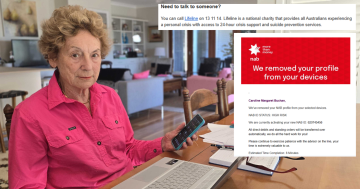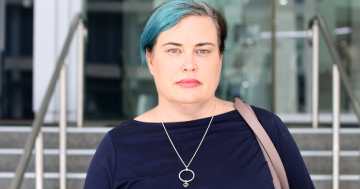 Victorians are being advised to be wary of phone messages from family members or friends claiming they need help, following a significant rise in ‘Hi Mum’ scams in recent months.
Victorians are being advised to be wary of phone messages from family members or friends claiming they need help, following a significant rise in ‘Hi Mum’ scams in recent months.
Deputy Chair of the Australian Competition and Consumer Commission (ACCC), Delia Rickard said more than 1,150 Australians fell victim to the family impersonation (known as ‘Hi Mum’) scam in the first seven months of this year, with the vast majority of the scams reported in June and July, and total reported losses of $2.6 million.
“We have seen an explosion in the number of ‘Hi Mum’ scams in the past couple of months and so we are warning Australians to be very wary of messages from unknown numbers claiming to be from their children, parents, relatives or friends,” Ms Rickard said.
“Scammers will stop at nothing to get your personal details or money and this particular scam is designed to pull your heartstrings,” she said.
“It’s important to stop and think if you get a message, especially on WhatsApp, because chances are it’s not your family member or friend – it’s a scammer.”
Ms Rickard urged people who received suspicious messages from a number they didn’t recognise, to independently verify the contact.
She said if people were contacted by someone claiming to be their son, daughter, relative or friend, they should start by calling them on the number already stored in their phone to confirm if it was no longer in use.
“If they pick up – you know it’s a scam,” the Deputy Chair said.
“If unable to make contact, you should try a secondary contact method to verify who you’re speaking to,” she said.
“If you still can’t contact your family member or friend, consider asking a personal question a scammer couldn’t know the answer to, so you know the person you are speaking to is who they say they are.”
Above all, Ms Rickard said people should never send money without being absolutely sure of who they were sending it to.
“Unfortunately, these unscrupulous scammers are targeting women and older Australians, with 82 per cent of family impersonation scams reported by people over the age of 55, accounting for 95 per cent of all reported losses,” she said.
“If you have reason to believe you have been scammed, contact your bank as soon as possible as they may be able to find where the money went, block scam accounts and help others to avoid sending money to scammers.”











